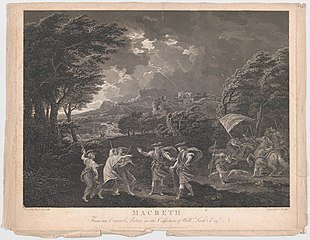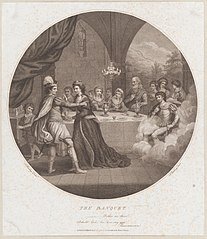Macbeth is a tragedy written by William Shakespeare later in his career about a Scottish nobleman’s obsession with power. It’s one of Shakespeare’s timeless classics.”
The following themes of Macbeth explore ambition, power, guilt, and the consequences of one’s actions. We can draw parallels to our own lives, despite the story’s historical setting and supernatural elements.

Themes of Macbeth
Following are the key themes of Macbeth………
Ambition
- Macbeth’s unchecked ambition is at the heart of the play. He becomes consumed by the desire for power, leading him to commit murder and descend into tyranny.
- Lady Macbeth’s ambition is equally strong, driving her to persuade her husband to commit regicide. However, her ambition ultimately leads to her mental breakdown.
Guilt and Conscience
- Guilt is a pervasive theme as characters grapple with the moral consequences of their actions. Both Macbeth and Lady Macbeth suffer from overwhelming guilt and vivid hallucinations.
- Macduff’s unwavering sense of justice and righteousness underscores the theme of conscience.
Corruption of Power
- “Macbeth” explores how the pursuit and attainment of power can corrupt individuals. Macbeth’s transformation from a loyal soldier to a ruthless dictator exemplifies this theme.
- The abuse of power is evident in the cruelty and violence that characterize Macbeth’s rule, leading to chaos and suffering in Scotland.
Daily Test - Attempt Now
Fate vs. Free Will
- The play raises questions about whether individuals have control over their destinies or if they are preordained by fate. The witches’ prophecies suggest a predetermined future.
- Despite the prophecies, Macbeth makes choices that align with his ambition, emphasizing the interplay between fate and free will.
Deception and Appearance vs. Reality
- Characters often wear masks, concealing their true intentions. Macbeth and Lady Macbeth hide their murderous plans behind a façade of hospitality.
- The witches’ prophecies and visions further blur the lines between appearance and reality, leaving characters and the audience uncertain about what is genuine.
Violence and Bloodshed
- The play is filled with violent acts, including regicide, murders, and battles. Blood becomes a symbol of the characters’ guilt and the chaos they unleash.
- The prevalence of violence underscores the destructive nature of unchecked ambition and power.
Gender Roles
- “Macbeth” challenges traditional gender roles, particularly through the character of Lady Macbeth. She defies societal expectations of femininity by advocating for ruthless action.
- Lady Macbeth’s eventual descent into madness may be seen as a commentary on the limitations imposed on women in a patriarchal society.
Supernatural Elements
- The presence of witches and supernatural elements adds an eerie dimension to the play. The witches’ prophecies and apparitions contribute to the characters’ downfall.
- The supernatural also raises questions about the boundaries between the natural and the supernatural worlds.
Complexity of Human Nature
- Characters in “Macbeth” are multifaceted, showcasing both good and evil qualities. Macbeth, for example, is a brave warrior but succumbs to greed and ruthlessness.
- This theme highlights the intricate and contradictory aspects of human behavior and character.
Disruption of Order
- Macbeth’s ascent to power disrupts the natural order of Scotland. The country descends into chaos as a result of his tyrannical rule.
- The play explores the consequences of destabilizing established norms and institutions.
Also, Read

Macbeth Plot Summary

